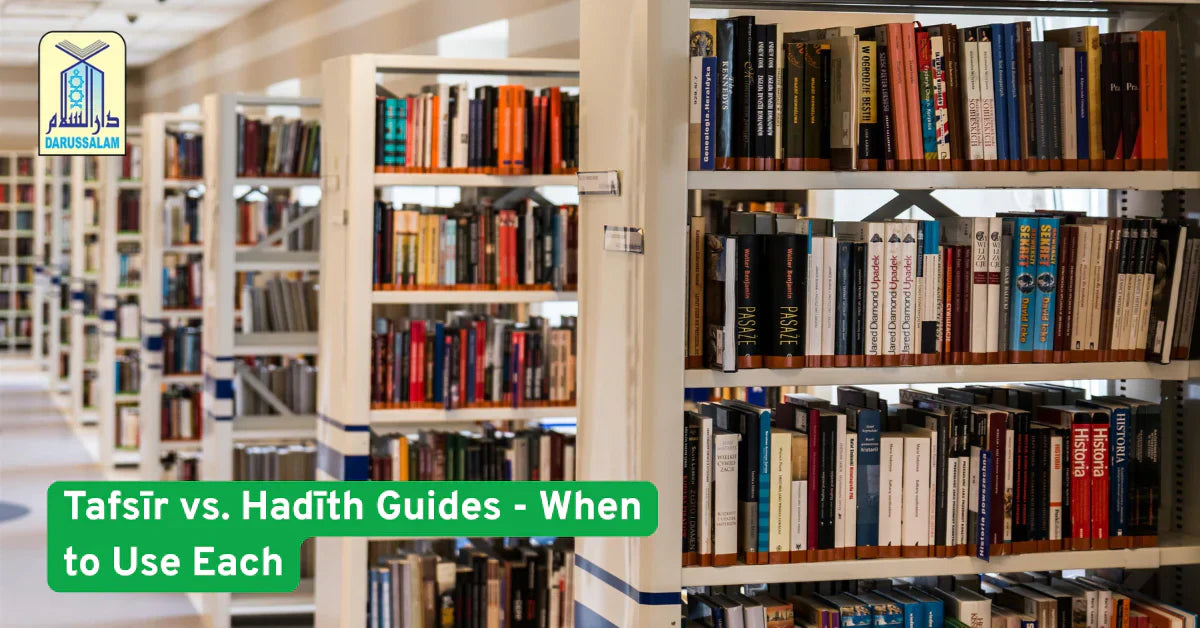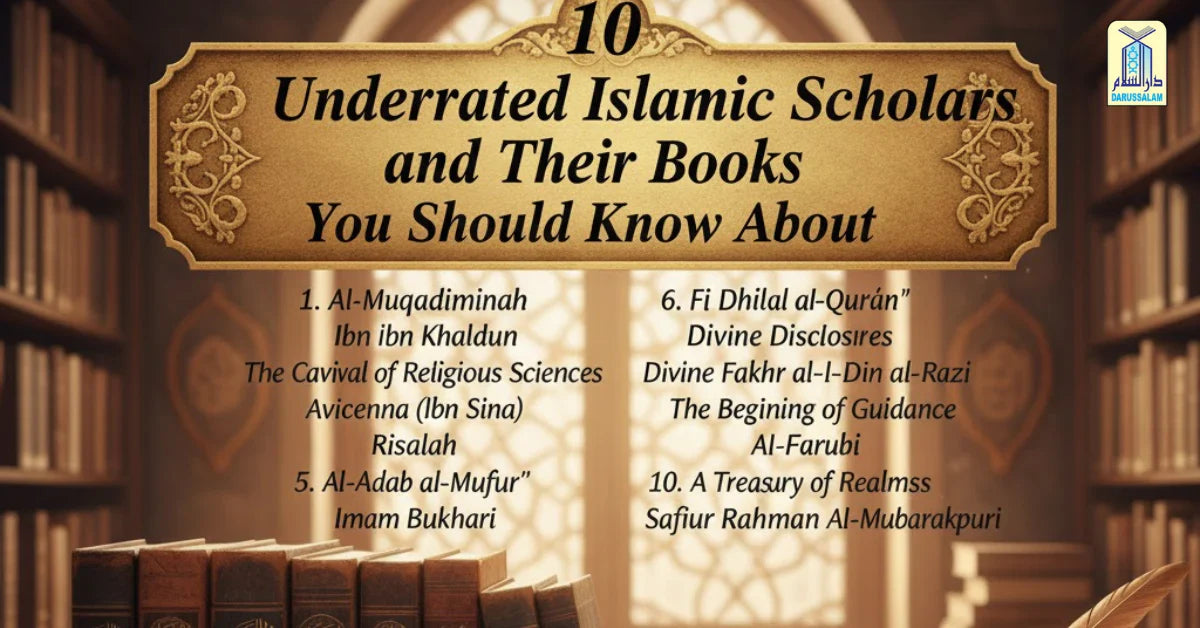Understanding the Tafsīr vs. Hadīth guides is essential for anyone seeking deeper insights into Islamic texts and teachings. Both Tafsīr and Hadīth offer valuable resources, but they serve distinct purposes and are used in different contexts. Whether you are a scholar, student, or someone looking to broaden your understanding of Islam, knowing when to use each can greatly enhance your comprehension of the faith. In this article, we’ll explore the key differences between Tafsīr and Hadīth, their importance, and when it’s appropriate to use each guide. These texts are integral to understanding the Quran and the sayings of Prophet Muhammad (PBUH), forming the foundation of Islamic knowledge.
What is Tafsīr?
Tafsīr refers to the interpretation or exegesis of the Quran, aimed at explaining the meanings behind the Quranic verses. It delves into the context, language, and background of specific revelations, helping readers understand the divine message more deeply. Tafsīr involves the use of various disciplines, including grammar, linguistics, historical context, and theology, to provide a more comprehensive understanding of the Quran.
When to Use Tafsīr
-
To Understand the Quranic Message: When you are seeking to understand the full meaning and context of a particular Quranic verse.
-
For Detailed Explanations: When you need a thorough explanation of the Quranic text, including its historical context and interpretations of various scholars.
-
In Religious Studies or Academic Research: When conducting in-depth studies of the Quran’s divine message, especially for academic purposes.
What is Hadīth?
Hadīth refers to the sayings, actions, and approvals of Prophet Muhammad (PBUH), as reported by his companions and other trusted narrators. These collections offer insights into the Prophet’s life and teachings, complementing the Quran in guiding Muslims on how to lead a righteous life. The Hadīth literature consists of both Sahīh (authentic) and da'īf (weak) narrations, with great emphasis placed on verifying the authenticity of each narration.
When to Use Hadīth
-
For Practical Guidance: When you seek guidance on how to live according to the practices and teachings of the Prophet Muhammad (PBUH).
-
To Understand the Sunnah: When you wish to learn about the lifestyle, actions, and habits of the Prophet, which are essential for Muslims to follow.
-
In Jurisprudence (Fiqh): When making legal decisions or understanding the principles of Islamic law based on the practices of the Prophet.
Key Differences Between Tafsīr and Hadīth
1. Content
- Tafsīr explains the Quranic text, while Hadīth provides records of the Prophet's sayings and actions.
2. Purpose
-
Tafsīr aims to clarify the meaning and context of Quranic verses.
- Hadīth helps Muslims understand how the Prophet Muhammad (PBUH) lived and practiced the teachings of Islam.
3. Authorship
-
Tafsīr is written by Islamic scholars and interpreters.
- Hadīth is based on the narrations of companions of the Prophet and later collectors, like Imam Bukhari and Imam Muslim.
4. Use in Practice
-
Tafsīr is crucial for those seeking a deeper understanding of the Quran’s message.
-
Hadīth is used for guidance on Islamic practices, rituals, and moral conduct.
When Should You Use Tafsīr vs. Hadīth?
To determine when to use Tafsīr vs. Hadīth guides, consider the following:
-
Use Tafsīr when you want to gain an in-depth understanding of Quranic verses and their meanings. Tafsīr provides historical context, linguistic explanations, and various interpretations from scholars.
- Use Hadīth when you need specific guidance related to the Sunnah (the practice of the Prophet) or Islamic law (fiqh). Hadīth explains how the Prophet Muhammad (PBUH) exemplified the teachings of the Quran through his actions and sayings.
Both resources complement each other and offer insights into understanding and practicing Islam, but each serves a unique purpose.
Why Choose DarusSalam Publishers for Tafsīr and Hadīth Guides?
DarusSalam Publishers offers a wide range of Tafsīr and Hadīth guides, including some of the most well-respected and authoritative works in Islamic scholarship. Our curated collection is designed to help you deepen your understanding of the Quran and the Hadīth, offering clear explanations and context for each text. Whether you're a student, scholar, or just someone interested in learning more about Islam, our resources are trusted by Muslims around the world for their authenticity and depth.
Frequently Asked Questions (FAQs)
What is the difference between Tafsīr and Hadīth?
Tafsīr is the explanation of the Quranic text, while Hadīth consists of the sayings and actions of Prophet Muhammad (PBUH).
When should I use Tafsīr?
Use Tafsīr when seeking a deeper understanding of the Quranic verses, their meanings, and historical context.
When should I use Hadīth?
Use Hadīth when seeking guidance on the practices and sayings of the Prophet Muhammad (PBUH).
Can I use Tafsīr and Hadīth together?
Yes, both work together to provide a comprehensive understanding of Islam: Tafsīr for Quranic knowledge and Hadīth for prophetic guidance.
Are all Hadīths authentic?
No, Hadīths are classified as Sahīh (authentic), Hasan (good), and da'īf (weak), and only the authentic ones are used in practice.
Why is Tafsīr important for understanding the Quran?
Tafsīr explains the context, history, and deeper meanings behind Quranic verses, helping readers understand the text comprehensively.
Is Hadīth used in Islamic law?
Yes, Hadīth plays a critical role in forming Islamic jurisprudence (fiqh), providing practical examples from the Prophet’s life.
Can Hadīth be used for personal guidance?
Absolutely! Hadīth offers personal and ethical guidance based on the Prophet's behavior and teachings.
What makes DarusSalam's Tafsīr and Hadīth guides different?
DarusSalam offers authoritative and well-researched Tafsīr and Hadīth works that are accessible and trustworthy for all levels of readers.
How do I start learning from Tafsīr and Hadīth guides?
Begin by exploring our collection of Tafsīr and Hadīth texts, and select works that match your level of understanding and areas of interest.
Enhance Your Islamic Knowledge with Tafsīr and Hadīth Guides from DarusSalam Publishers!
Understanding the distinctions between Tafsīr vs. Hadīth guides is crucial for anyone seeking deeper knowledge of Islam. Each guide serves its purpose—Tafsīr to illuminate the meaning of the Quran and Hadīth to offer insight into the Prophet Muhammad's (PBUH) practices. By utilizing these resources, you’ll enhance your understanding of both the Quran and Sunnah.
Explore the comprehensive collection of Tafsīr and Hadīth guides at DarusSalam Publishers to continue your journey toward greater Islamic knowledge and practice!





